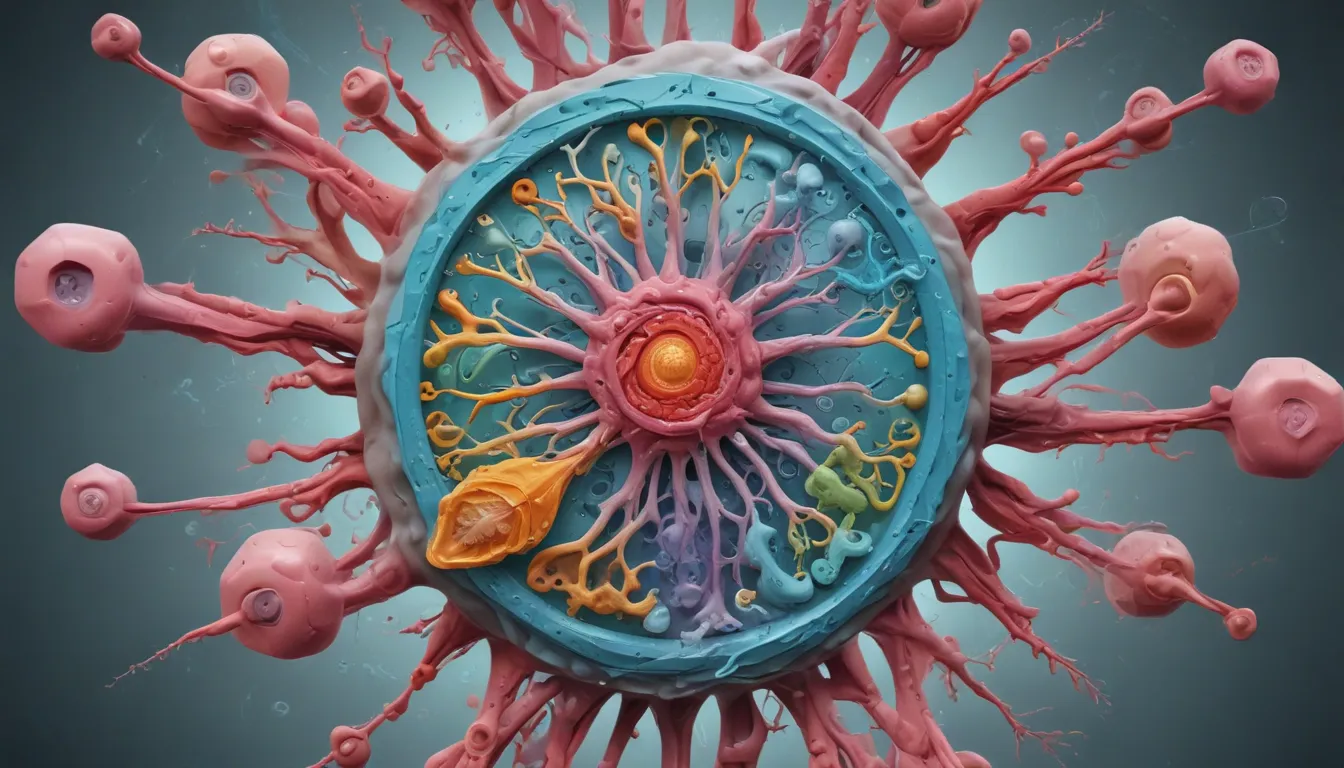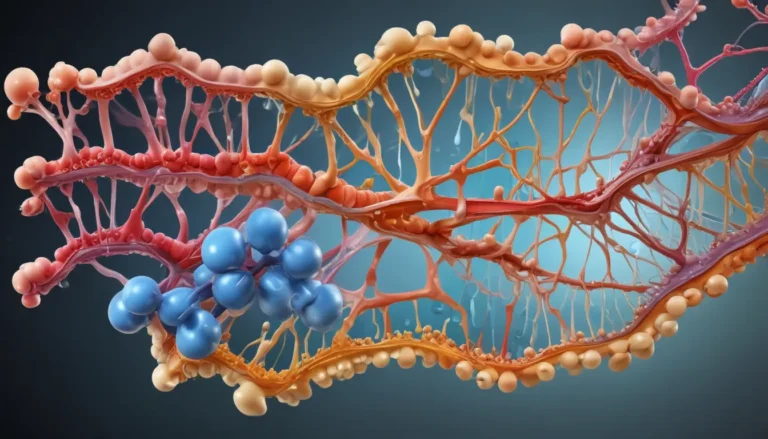A Note About Images: The images used in our articles are for illustration purposes only and may not exactly match the content. They are meant to engage readers, but the text should be relied upon for accurate information.
Have you ever wondered how the microscopic world inside our cells functions with such precision and efficiency? The answer lies in the intricate process of ubiquitin tagging, a biological mechanism that orchestrates crucial cellular activities. From protein degradation to DNA repair and cell signaling, ubiquitin tagging is at the heart of it all. In this article, we will journey through 14 surprising facts about ubiquitin tagging that will deepen your understanding of this essential process.
The Marvel of Ubiquitin Tagging
Imagine a tiny protein called ubiquitin acting as a “recycle” sticker on proteins, signaling the cell to break them down and create new ones. It’s like having a cleanup crew inside the cell, ensuring everything runs smoothly. But ubiquitin tagging is not just about cleaning up; it’s a multitasking superhero that guides proteins, fights off diseases, and maintains cellular order.
The Birth of Ubiquitin
Ubiquitin, a small protein with 76 amino acids, is a universal player found in all eukaryotic organisms. Its primary role is to mark proteins for degradation or regulate their activity, a crucial task in maintaining cellular balance and function.
Chain Reaction: Ubiquitin Forms Chains
Ubiquitin can form chains by attaching to itself through internal lysine residues. These chains come in varying lengths and topologies, giving rise to different cellular functions and pathways.
Flagging Proteins for Disposal: Ubiquitin Tagging Regulates Protein Degradation
Ubiquitin tagging acts as a flag on proteins, marking them for degradation by the proteasome. This large protein complex is responsible for breaking down marked proteins, maintaining cellular cleanliness and efficiency.
Efficiency in Regulation: Ubiquitin Tags Determine Proteasomal Degradation
The number and location of ubiquitin tags on a protein can influence its degradation efficiency by the proteasome. Higher tag counts generally lead to quicker degradation, ensuring timely turnover of cellular components.
Maintaining Balance: Ubiquitin Tagging Controls Protein Turnover
In the intricate dance of cellular life, ubiquitin tagging ensures the timely removal of damaged or unneeded proteins, maintaining protein homeostasis and allowing for efficient turnover of cellular components.
Guiding Proteins: Ubiquitin Signals Protein Localization
Ubiquitin tags play a crucial role in dictating protein localization within the cell, guiding proteins to specific compartments or organelles where they are needed.
Cell Cycle Symphony: Ubiquitin-Mediated Proteolysis Essential for Cell Cycle Progression
The ubiquitin-proteasome system regulates cell cycle progression by targeting key regulatory proteins for degradation at different stages of the cycle. This orchestration is essential for proper cell division and growth.
Guardian of Genomic Stability: Ubiquitin Tagging Regulates DNA Repair
Ubiquitin-dependent processes are integral to DNA repair mechanisms, ensuring the maintenance of genomic integrity and providing protection against DNA damage.
Reversible Tags: Ubiquitin Tags Can Be Removed
Ubiquitin tags are not permanent marks. Specialized enzymes called deubiquitinases can remove ubiquitin from tagged proteins, allowing for precise regulation and fine-tuning of protein function.
Traffic Control: Ubiquitin Tagging and Protein Trafficking
Ubiquitin tagging intricately directs protein trafficking, marking proteins for endocytosis, sorting them to various cellular compartments, or targeting them for recycling, ensuring proper protein distribution.
Stress Management: Ubiquitin Signaling in Cellular Stress Response
In times of cellular stress, such as oxidative stress or heat shock, ubiquitin tagging activates protective responses and aids in restoring cellular balance, showcasing its vital role in cellular survival.
Silent Heroes: Ubiquitin in Neurodegenerative Diseases
Malfunctions in the ubiquitin-proteasome system have been linked to neurodegenerative diseases like Parkinson’s and Alzheimer’s. Understanding ubiquitin tagging is crucial for maintaining neuronal health and developing targeted therapies.
Gatekeepers of Immunity: Ubiquitin in Immune Response
Ubiquitin plays pivotal roles in regulating immune responses, controlling immune cell activation and signaling to influence the outcome of immune reactions in health and disease.
Quality Control: Ubiquitin Tagging for Protein Quality Control
Ubiquitin tagging is a critical component of protein quality control mechanisms, ensuring that misfolded or damaged proteins are identified, marked for degradation, and prevented from causing cellular harm.
In conclusion, ubiquitin tagging is a marvel of cellular biology, orchestrating essential functions that sustain life. From protein degradation to immune response regulation, this process influences diverse biological pathways with precision and efficiency. By unraveling the mysteries of ubiquitin tagging, we gain valuable insights into cellular processes and potential therapeutic interventions for diseases involving protein dysregulation.
FAQs
Q: What is ubiquitin tagging?
A: Ubiquitin tagging is the process of adding ubiquitin molecules to target proteins to regulate various cellular functions like protein degradation and signaling.
Q: How does ubiquitin tagging affect protein function?
A: Ubiquitin tags can alter protein function by targeting proteins for degradation, signaling pathways, or protein localization, influencing their activity.
Q: Can ubiquitin tagging be involved in disease?
A: Yes, dysregulation of ubiquitin tagging has been implicated in diseases like cancer, neurodegenerative disorders, and inflammatory conditions, highlighting its clinical significance.
Trust in our commitment to providing accurate and engaging content as you explore the fascinating world of ubiquitin tagging. Stay curious, stay informed, and continue your journey into the realm of cellular biology and protein regulation.






